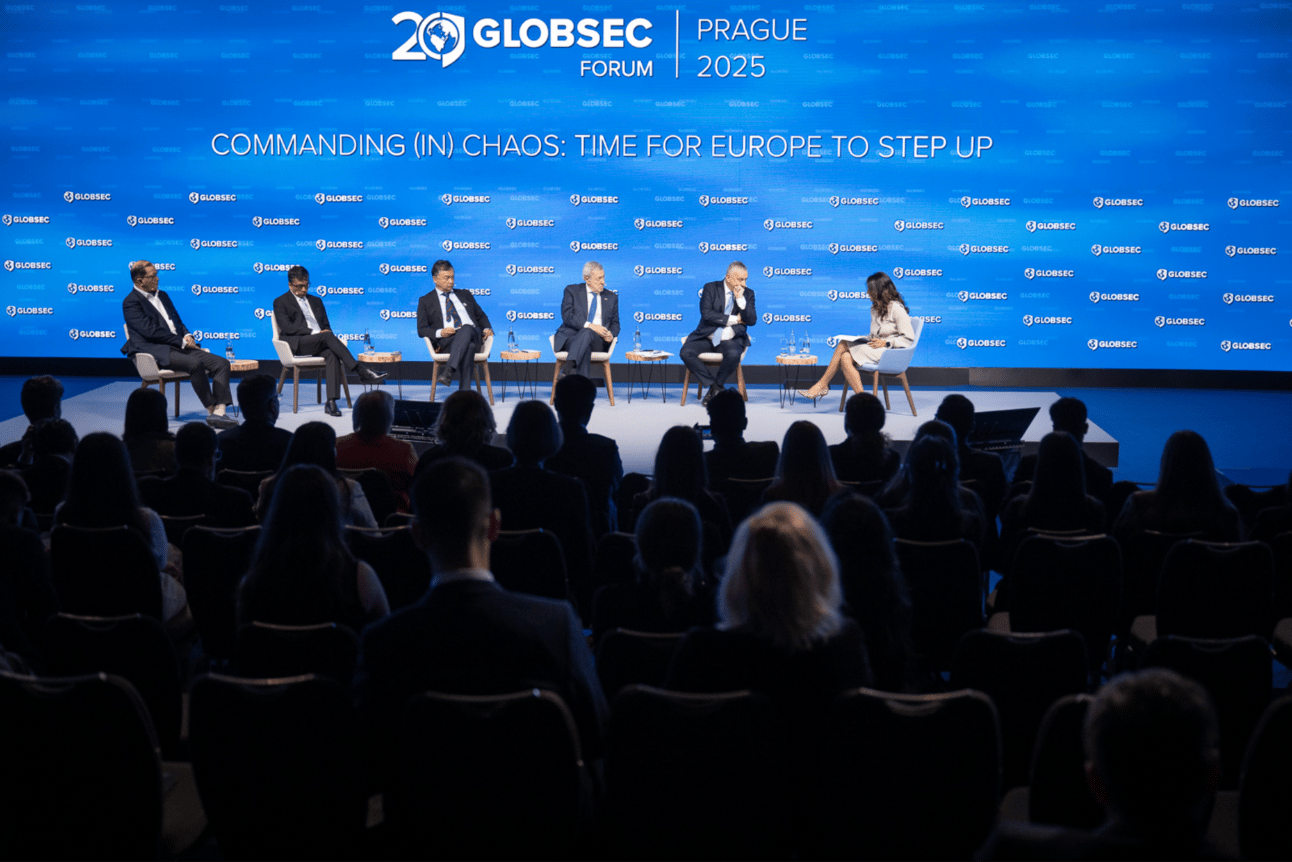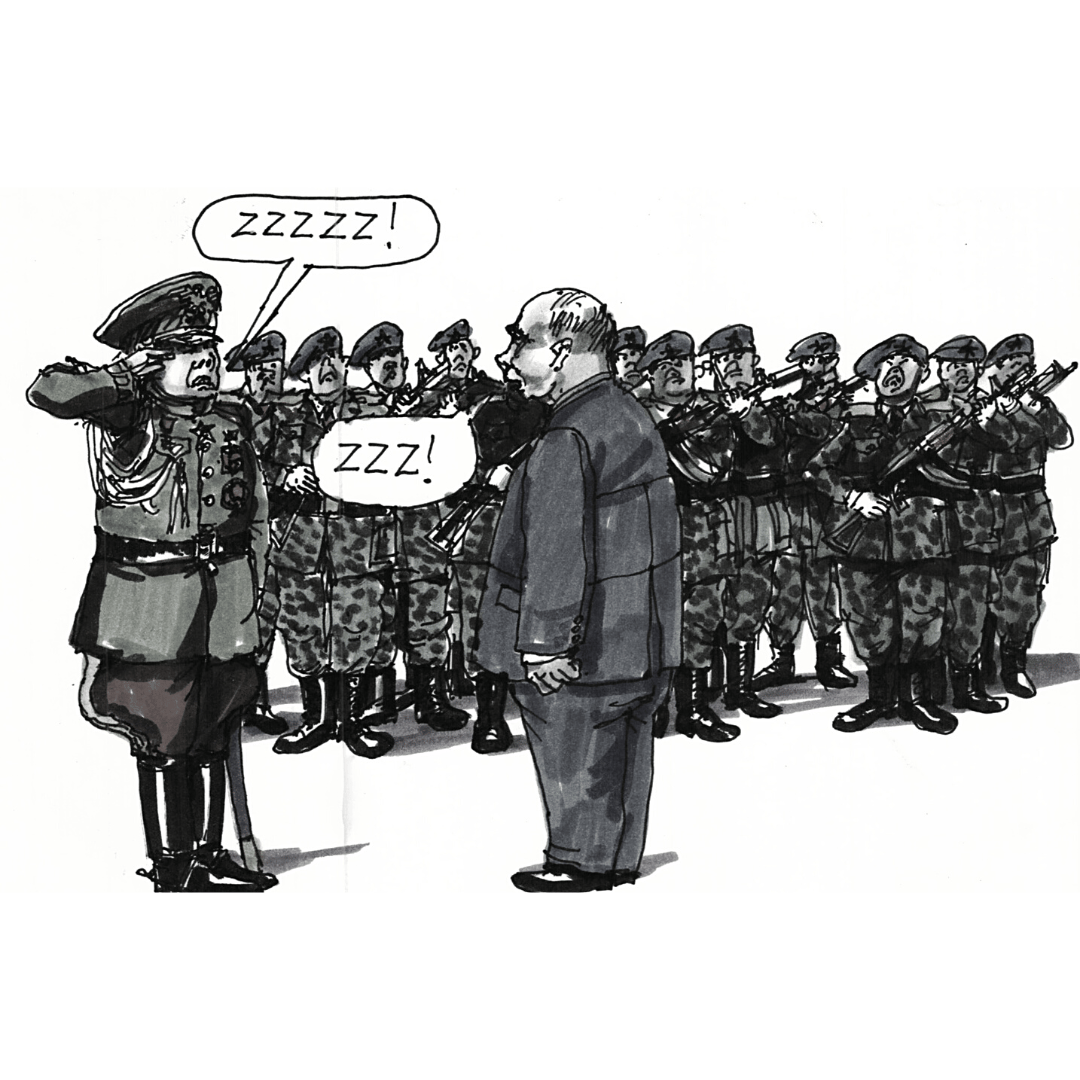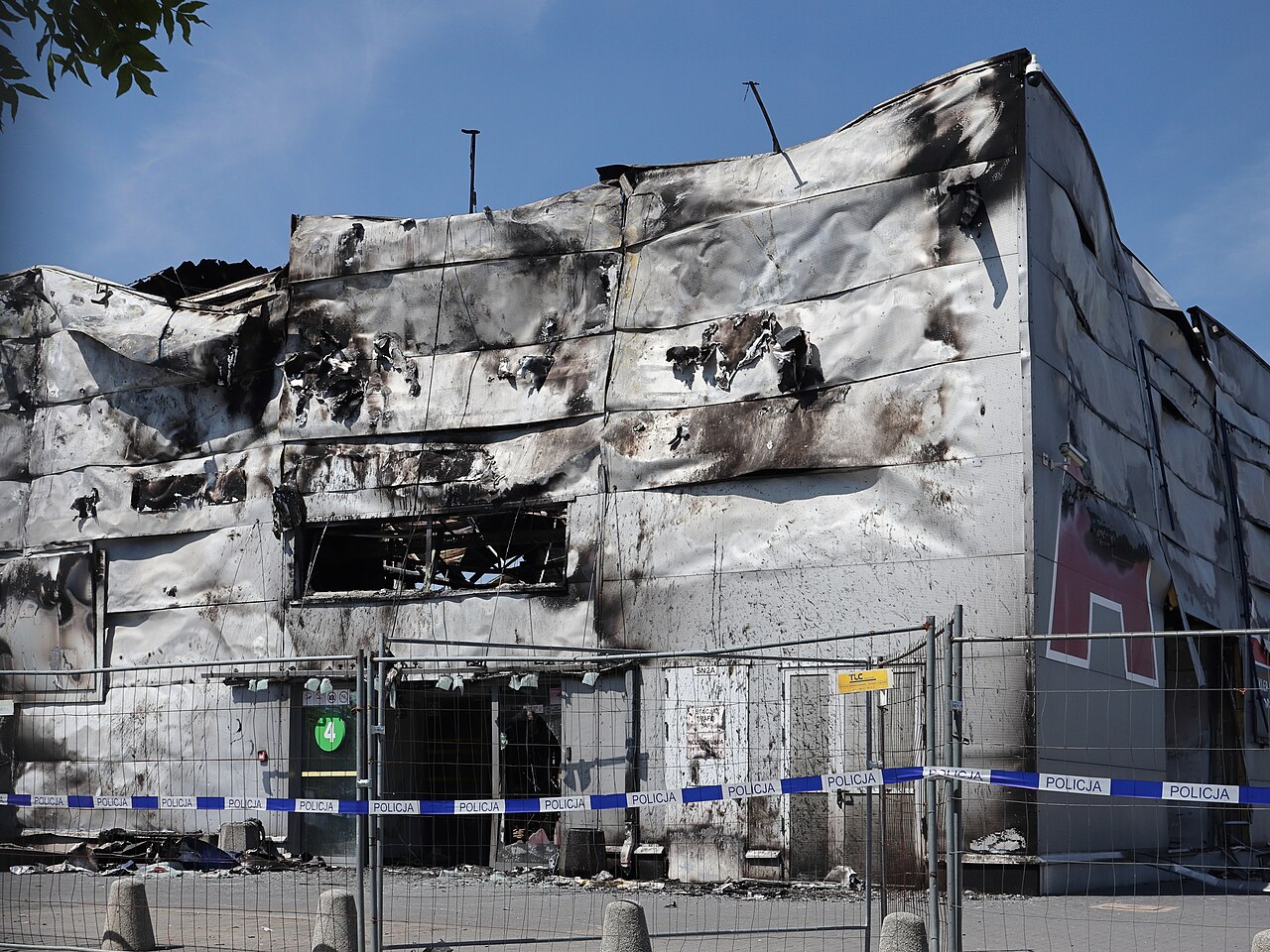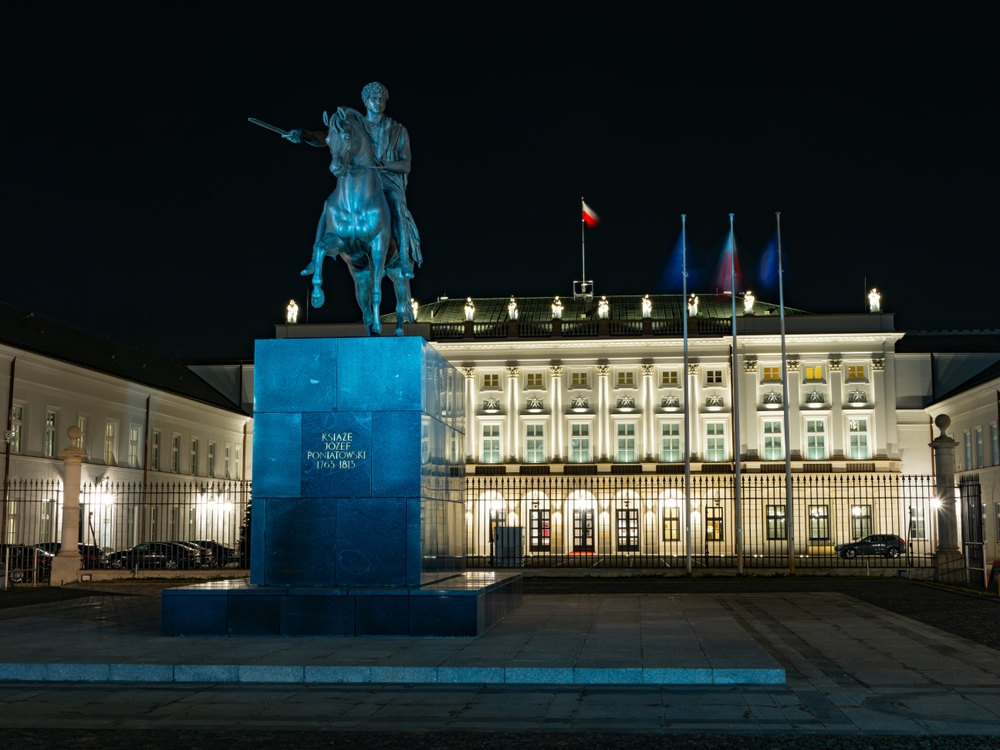DEAR READER,
While G7 leaders are gathering in Canada's Kananaskis for the summit, we are keeping our eyes on Central and Eastern Europe, and we have plenty to unpack this week.
We have just returned from Prague, where we were attending the 20th edition of the GLOBSEC Forum 2025. The event once again brought together top experts to discuss everything from NATO expansion to countering hybrid warfare, and most importantly Ukraine and its path to reconstruction. We will be breaking down our key takeaways in the expert opinion below.
Also, shoutout to Talk Eastern Europe for being shortlisted for “Best Deep Dive Podcast” at the Publisher Podcast Awards. Alexandra Karppi represented the team at the ceremony. We didn't win, but being in the mix with names like Reuters and Foreign Policy is quite the honor for us!
Enjoy reading this week’s “brief”!
— Giorgi Beroshvili, Editor
TOP STORIES OF THE WEEK
🇱🇻 Latvia's parliament banned state officials and MPs from traveling to Russia and Belarus. The law, which passed Thursday, affects parliamentarians, diplomats, justice employees, and those working with state secrets or critical infrastructure. Officials can travel only for official duties or humanitarian reasons. Violations of the law can carry the penalty of potential dismissal. The ban also prohibits Russian and Belarusian citizens from owning critical infrastructure in Latvia.
🇲🇰 34 people charged in North Macedonia over the deadly March nightclub fire in Kocani. The charges, against nightclub owners, former mayors, ministers, inspectors, and security guards include "grave acts against public security." The fire at Pulse nightclub, which killed 62 people, was caused by pyrotechnics that ignited flammable roofing material during a concert, with improperly designed exits trapping victims inside the crowded venue.
🇨🇿 Czech opposition called a no-confidence vote against the government over corruption allegations. This follows a $45 million bitcoin payment accepted from an ex-convict by Justice Minister Pavel Blazek, who resigned May 31. The ex-convict was jailed 2017-2021 for drug trade involvement, fraud and weapons possession. The vote is scheduled for Tuesday but is likely to fail as the government holds a parliamentary majority.
🇵🇱 Polish driver Robert Kubica won the 24 Hours of Le Mans. His team, including Philip Hanson and Ye Yifei, finished 15 seconds ahead of the Porsche team. All three drivers are first-timers, with Kubica becoming the first Polish winner and Ye the first from China.
A MESSAGE FROM OUR PARTNER
Start learning AI in 2025
Everyone talks about AI, but no one has the time to learn it. So, we found the easiest way to learn AI in as little time as possible: The Rundown AI.
It's a free AI newsletter that keeps you up-to-date on the latest AI news, and teaches you how to apply it in just 5 minutes a day.
Plus, complete the quiz after signing up and they’ll recommend the best AI tools, guides, and courses – tailored to your needs.
EXPERT OPINION
How can Europe lead amid chaos?

The GLOBSEC Forum 2025’s theme was “Commanding (in) Chaos”, which centred particularly on the role that Europe can play in becoming a geopolitical actor and a global power in its own right. This comes at a time when the world order is shifting towards Great Power politics and away from a rules-based, multilateral system. In such a context, the key questions Europe must grapple with include: How can it lead amid this chaos? Is Europe capable of acting independently? And what solutions can it offer?
Europe is facing a complex and uncertain reality, so it is hard to say whether these questions can be sufficiently answered. However, the debates were deep and though-provoking. Let’s examine a few of the key issues.
#1 Ukraine and European defence
High-level speakers devoted considerable time to reaffirming Europe’s support for Ukraine and the need to invest in its recovery. Petr Pavel, in his speech said: “It is vital that we invest more in our own defence. But it is equally important that we do not let Ukraine fall. We need to do what we can to help Ukraine become more capable of defending itself, negotiating from a position of strength and self-confidence, and making the cost of any future aggression too high for Russia.”
Interestingly, few today speak of a Ukrainian victory, not even Volodymyr Zelenskyy, who addressed the audience following President Pavel. Instead, the conversation shifted toward securing a ceasefire and forcing Russia to the negotiating table. A comprehensive, Europe-wide strategy to ensure Ukraine’s resilience and sovereignty was noticeably absent. The general consensus leaned towards increasing economic pressure on Vladimir Putin and pursuing his international isolation. However, participants expressed doubts about the effectiveness of sanctions, especially the upcoming 18th EU sanctions package. While on the subject of international isolation, panellists discussing the so-called Global South openly admitted that Russia remains an important economic and (in some cases) strategic partner to many countries. Beyond Europe and a few close allies, there appears to be little appetite for isolating Russia globally.
#2 Ukraine’s reconstruction
Ukraine’s recovery also received significant attention. President Pavel stated, “The reconstruction of Ukraine is not only a moral imperative, but a strategic one. A strong, democratic, and economically viable Ukraine is essential for long-term stability in Europe.” While there was optimism about rebuilding Ukraine, tangible answers were lacking, especially regarding how to convince private European companies to invest in a country under constant missile and drone attack.
There was serious discussion about using frozen Russian assets in Europe to finance Ukraine’s reconstruction, but it was acknowledged that a political consensus on this remains elusive. The issue is far too politically sensitive and divisive within the EU to be resolved anytime soon.
#3 European security and transatlantic relations
A notable shift at the forum was the growing realization that Europe may not be able to fully rely on the United States for its security in the long term. This has triggered a debate on how Europe can strengthen its own defence within the NATO framework without creating friction within the alliance. One proposal gaining traction is the call by NATO Secretary General Mark Rutte (who did not attend the forum) for member states to spend five per cent of GDP on defence. Some experts deemed this goal achievable but only within a long-term framework, at least seven years. However, most intelligence assessments suggest that Russia may test NATO’s resolve within the next three to five years. This timeline puts Europe’s defence readiness under urgent scrutiny.
#4 EU enlargement
The topic of EU enlargement did make it onto the high-level agenda. The debate featured Serbian President Aleksandar Vučić and Armenian Prime Minister Nikol Pashinyan. However, much of the discussion was consumed by internal unrest in Serbia following the tragedy in Novi Sad. As a result, the broader strategic questions regarding EU enlargement under new geopolitical realities were left largely unaddressed.
Certainly, Europe is facing a convergence of crises in a world increasingly defined by chaos, amplified by the recent outbreak of conflict between Israel and Iran. Whether Europe has the capacity to lead in this environment, and how, remains a topic of ongoing debate. Nevertheless, time is running thin, and the geopolitical environment is growing more hostile. Europe must move from reflection to action, because in the current global disorder, hesitation can become a liability.
— Adam Reichardt, Editor in Chief at New Eatern Europe
SUPPORT NEW EASTERN EUROPE

New Eastern Europe — a non-profit publication based in Poland — has been covering the region since 2011. With a network of contributors across Central and Eastern Europe, we provide in-depth, English-language analysis, firsthand perspectives, and stories that often go unheard.
Your support helps us continue giving voice to the region.
ARTICLES OF THE WEEK
CARTOON OF THE WEEK

Do you want to see more of Andrzej’s drawings? Check out our dedicated gallery page featuring his cartoons here.





